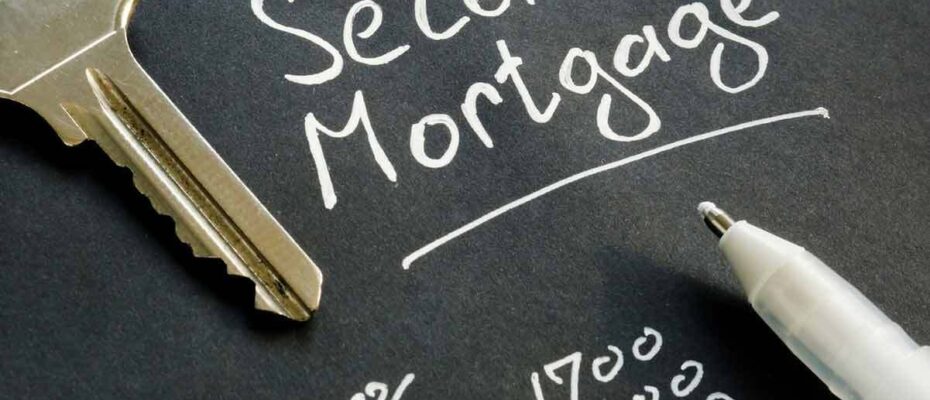We discuss how a second mortgage works and highlight some of the advantages and disadvantages of taking out this type of loan.
A second mortgage is a type of loan that allows homeowners to borrow against their mortgaged property. In other words, a second mortgage, otherwise known as a junior lien, is a loan that is taken out in addition to your first mortgage. This loan can be used for various purposes, such as home improvement projects, debt consolidation, paying for college, etc.
How a Second Mortgage Works
Like your first mortgage, a second mortgage is secured by the property you borrow against. This means that if you cannot make your payments, the lender can take possession of your home.
To qualify for a second mortgage, you will need to have equity in your home (usually 15-20% of your home’s value). Equity is the portion of your home’s value that you own outright or the part that you would pay if you sold your home today and paid off your first mortgage balance.
For example, let’s say that your home is worth $250,000 and you have a first mortgage balance of $150,000. Your equity in this scenario would be $100,000 (i.e., $250,000 – $150,000 = $100,000).
Next, you will need to have a good credit score and prove you can afford the monthly payments.
It’s worth noting that the interest rate on a second mortgage is usually higher than on your first mortgage, so it’s essential to shop around for the best deal.
What Are the Advantages of a Second Mortgage?
There are several advantages to taking out a second mortgage:
- You can use the money for any purpose.
- The interest on a second mortgage may be tax-deductible (consult your tax advisor to see if this applies to you).
- A second mortgage can be an excellent way to consolidate high-interest debt, such as credit card debt.
The Possible Disadvantages
Like any other loan, a second mortgage has its downsides:
- You may end up paying more interest over the life of the loan because you will have two separate loans with different interest rates.
- If you cannot make your payments, you could lose your home to foreclosure.
- You may need to pay for mortgage insurance if your down payment is less than 20%.
- You may have to pay closing costs, which can add up to several thousand dollars.
- If you sell your home or refinance your first mortgage, you will need to pay off your second mortgage balance.
As you can see, there are both pros and cons to taking out a second mortgage. Therefore, it’s crucial to weigh the benefits and drawbacks before deciding if this type of loan is right for you.
Contact Better Rate Mortgage
Are you planning to buy a home and are looking for the best mortgage option? The team at Better Rate Mortgage can help! We offer a variety of mortgage products to suit your needs. Contact us today to learn more about our services!

